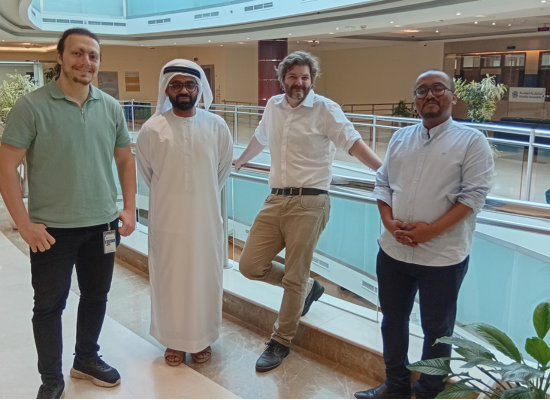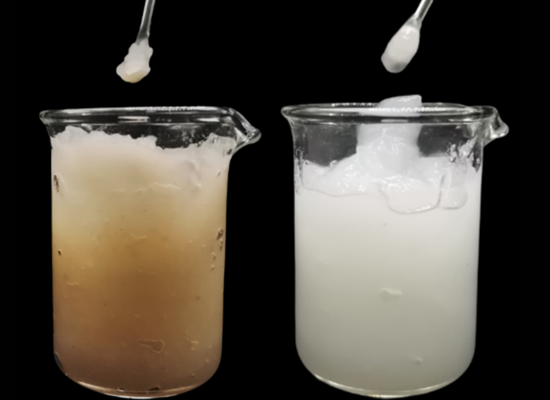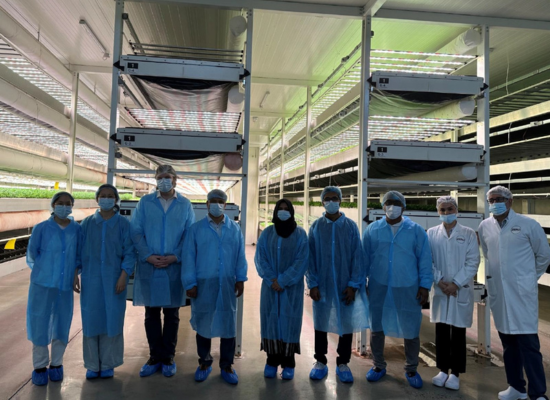Rooted in Passion, Growing a Greener World
M-Haidar A. Dali, now the COO and Co-founder of Verdisol, is a junior researcher at Khalifa University specializing in regenerative soil systems. His choice of research topic is no coincidence — it stems from a deeply rooted passion.Coming from a long line of farmers, Haidar was raised away from his family’s traditional farmlands but grew up surrounded by stories and practices of cultivation. His family’s small backyard garden sparked his fascination with soil, and his firsthand exposure to the challenges of agriculture in arid regions made it only natural that he dedicated his master’s project to developing green soil amendments to enhance agriculture there.
When the pandemic struck, Haidar moved from his university dorms back to his family’s home, continuing his studies online. Reconnecting with the garden he had tended since childhood, he began experimenting with ways to reduce household waste, turning the organic portion into fertilizer. He collected all organic matter into a compost heap. Despite his family’s initial skepticism toward the growing pile, they soon noticed the remarkable benefits the new fertilizer brought to their beloved garden.
"I have always been a fan of any endeavour that works for the better of the environment and especially those that can help with agriculture and soil because this is my background"
, explains Haidar. Back at university, Haidar continued to pursue his passion and realized that true innovation must be not only environmentally responsible but also economically viable to succeed on a larger scale. Since then, he has aimed to strike a balance between environmental solutions and feasibility.At Khalifa University, Haidar met Dr. Blaise Tardy whose extensive expertise in bioprocesses drew together a team of enthusiastic researchers focused on circular bioeconomy solutions. Under his guidance, Haidar and his colleagues explored ways to transform organic waste into valuable resources, aligning their research with the principles of a sustainable, circular economy.
Alongside Haidar, who holds a degree in chemical engineering, the Verdisol team includes Dr. Blaise Tardy and three other researchers specializing in biotechnology, biosystems engineering, chemistry, and materials engineering, as well as five students who assist with ongoing research.
One of the team’s biggest challenges was the lack of a waste separation system, unlike those found in countries such as Germany. Since households in the UAE are not required to separate organic waste, most of it ends up mixed, making collection inefficient. To overcome this, Haidar and his team partnered with catering companies and hotels — institutions that naturally generate large amounts of separated organic waste, such as fruit peels and vegetable scraps.
The name “Verdisol” combines the Latin words “viridis” (green) and “sol” (sun), reflecting the team’s vision: to harness nature’s ultimate source of energy to transform even the driest lands into seas of green.
Unlocking the Potential of the World’s Most Abundant Polymer
Verdisol’s innovation lies in the production of nanocellulose from organic food waste. Cellulose — the primary structural component of plant cell walls — is the most abundant biopolymer on Earth. It exists as fibers that bundle together to form the meshes giving plants their strength and rigidity. When these fibers are separated into elementary fibrils below 100 nanometers in diameter, they are called nanofibers.This material is not only remarkably strong but also capable of absorbing and retaining water several times its own volume. When mixed with soil, nanocellulose acts as an inseparable component that holds nutrients from fertilizers and moisture from irrigation for longer periods, making farming in arid regions significantly more efficient.
The production process requires minimal to no chemical input — depending on the hardness of the source material and the desired purity of the final product. Verdisol’s method consumes less energy and chemicals while also reducing the environmental burden associated with landfilling or incinerating plant waste. In contrast, conventional nanocellulose is typically produced from fresh wood, which necessitates harvesting new biomass.
Verdisol has developed a way to produce this remarkable material at a much lower cost, while maintaining similar quality to commercially available alternatives. This advancement aligns perfectly with current global trends: as industries shift toward digital interactions and paper consumption declines, paper mills are seeking new, high-value applications — and nanocellulose offers a promising path forward.
The breakthrough opens a wide range of opportunities in research, industry, and product innovation, many of which were previously infeasible due to high costs. While Verdisol is currently focusing on agricultural applications, the team envisions broader uses.
“We believe this material’s versatility is truly fascinating and it has the potential for many more applications”
, says Haidar.Once isolated, nanocellulose fibers can serve in a diverse range of industries, depending on the required purity — from agriculture and textiles to cosmetics, medicine, and even bioelectronics. This innovation not only enhances sustainable agriculture in dry regions but also paves the way for natural, renewable alternatives across multiple sectors.
Next up at Verdisol
Currently, Verdisol is developing formulations that combine compost from one of their UAE partners with their nanocellulose material, offering “the best of both worlds” — the nutrient richness of compost and the structural enhancement of nanocellulose. The company is also refining its machinery design to achieve pilot-scale production by 2026. In parallel, Verdisol is focused on scaling up manufacturing, diversifying its product portfolio, and expanding applications of its technology. Beyond product development, the start-up is strengthening partnerships with agricultural organizations and research institutions to accelerate the adoption and validation of its sustainable solutions.
With their innovative approach, Verdisol, who joined the ISC3 Global Start-up Service as one of the Innovation Challenge finalists in Sustainable Chemistry and Climate Change in July 2025, actively contributes to SDG2 (Zero Hunger), SDG12 (Responsible Consumption and Production), SDG13 (Climate Action), SDG15 (Life on Land).




